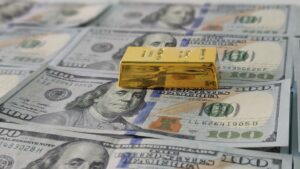Financial forecasters are increasingly concerned about recession risks following new trade tensions. J.P. Morgan has raised its global recession probability to 60% (from 40%), specifically citing “disruptive U.S. policies” as the biggest threat to economic stability. S&P Global increased its U.S. recession odds to 30-35% (from 25%), while Goldman Sachs raised its estimate to 35% (from 20%) even before the April 2 tariff announcement. These concerns follow the Trump administration’s broad tariff impositions and China’s subsequent retaliation, creating fears of escalating trade wars.
Multiple institutions including HSBC, Barclays, BofA, Deutsche Bank, RBC, and UBS have issued warnings about heightened recession risks if the tariffs remain in place, with economic growth projections dropping to between 0.1% and 1%. The market impact has already been significant, with the S&P 500 down over 8% this year, prompting several brokerages to cut their year-end stock market targets. This marks a substantial shift from the market optimism that followed Trump’s election win in November.


![Is Now the Best Time to Buy Silver? [Silver 2025–2030 Forecasts]](https://goldsilver.com/wp-content/uploads/2025/11/price-of-silver-300x155.jpg)


